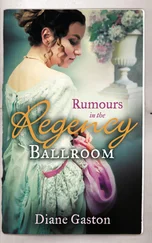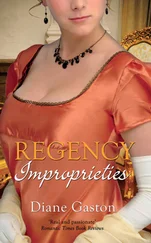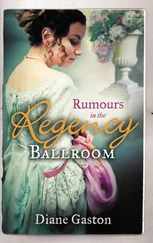Men died in battle.
For the thousandth time she prayed that God would spare Claude’s life. She prayed for Gabriel, as well.
Even though she would never see him again.
He walked to the door without looking at her. Her legs trembled and the room seemed to close in on her.
He opened the door, but turned to her. “Goodbye, Emmaline.” His voice was so soft she could hardly hear him.
A moment later he was gone.
Wanting to sink to the floor in a miserable heap, Emmaline instead forced herself to square her shoulders, to tackle the chores that needed finishing before she opened the shop. She started for the kitchen to wash the dishes, but something on the dining table caught her eye.
A small black-velvet box.
Gabe made his way back to his hotel as if wearing blinders, noticing no one and nothing, not even the weather. On previous mornings, he’d savoured this same walk, enjoying all the sights and sounds, savouring the fresh morning air. This morning his mind was as mechanical as an automaton, turning it over and over that Emmaline was lost to him.
Back in his room at the Hôtel de Flandre Gabe shaved and changed. He would regain control of his emotions, he told himself. There were plenty of women in the world besides Emmaline, women with whom to share brief moments of pleasure. It would be enough. No longer would he dream of a home, a wife, a family. He would remain in the army where he belonged.
Conjuring up visions of another life had been a momentary lapse of sanity.
As a soldier he had one duty now. For Emmaline he had compromised that duty, delaying the report that the French were near, but he would delay no longer.
Gabe went straight to the Allied Army headquarters. As he entered the white-stone building, the two men he least desired to encounter walked towards him: Edwin Tranville, the man who’d tried to rape Emmaline, and his father, General Lord Tranville. The general had managed to inherit a title since Gabe had last seen him.
“What are you doing here, Deane?” the general barked. As a greeting, it was one of Tranville’s most cordial. His son, whose face bore a scar from his temple to his mouth, created by Emmaline’s knife, did not even bother to acknowledge him.
“Sir.” Gabe bowed to the general, a respect the man did not deserve. “I need to see Wellington or one of his aides-de-camp.”
“You?” Tranville’s brows rose. “What reason could you possibly have to see the Duke or his aides?”
If Tranville had not been Gabe’s superior officer, he would not have replied. “The French army has crossed into Belgium.”
Tranville frowned. “How can you know that? What evidence do you have?”
“I encountered a French soldier in the city last night.” This was wasting Gabe’s time.
Tranville’s eyes narrowed. “Encountered? Where?”
Gabe glanced from the general to his son, who was now leaning against the wall, as if needing it to keep him upright. How much did Edwin remember about that night in Badajoz? Gabe wondered. Had he told his father about it?
No matter what, Gabe refused to lead them to Emmaline. “I saw him on the street.”
Tranville laughed. “On the street? Not having a casual stroll through the Parc? Do not be a damned fool. If you saw anything at all, it was probably a Dutch infantryman.”
“I did not mistake the uniform. The man was not desiring to be seen and why would a Dutch infantryman be trying to hide?”
Why did he even bother arguing with Tranville? Gabe did not care if Tranville believed him or not. “In any event, I feel it is my duty to report it.”
Tranville’s nostrils flared. “Do not mention this to Wellington. Do not waste his Grace’s time.”
Gabe shrugged. “To one of his aides, then.”
Tranville huffed. “You will say nothing. Am I making myself clear? Your duty has been discharged by making your report to me.”
Gabe persisted. “And you will pass on this information?”
The general’s voice rose. “As I am your superior officer, you will not question what I will or will not do. The Duchess of Richmond is giving a ball tonight, in case you did not know, and I will not have his Grace and other gentlemen distracted by this foolishness.” He emphasized the word gentlemen.
When General Tranville became Gabe’s superior officer, he had made certain that Gabe did not rise in rank past captain. The general did not believe in field promotions or those based on merit. Gabe had come from the merchant class and only true gentlemen advanced the proper way, by purchasing a higher rank. It was a matter of pride to Gabe that he did not advance through purchase, although his family, and now he, could have afforded it.
Tranville waved a dismissive hand. “Go see to your men or whatever nonsense you must attend to. You can have no further business here.”
A string of invectives rushed to the tip of Gabe’s tongue. He clamped his teeth together.
“Yes, sir!” he responded, bowing and performing a precise about-face.
Gabe walked away, keeping a slow pace so that Tranville would not suspect he’d been roused to anger.
As he reached the door to the outside, he heard Edwin drawl, “How very tiresome.”
Later that evening Gabe learned his information had been accurate and that General Tranville had not passed it on. Wellington heard about Napoleon’s march towards Brussels at the Duchess of Richmond’s ball, a good twelve hours after Gabriel reported it to Tranville. Wellington was said to have remarked, “Napoleon has humbugged me, by God. He has gained twenty-four hours’ march on me.”
Gabe would have saved Wellington half that time.
The next day Gabe’s regiment, the Royal Scots, joined other Allied forces at Quatre Bras where they met the French. How quickly it all came back, the pounding of cannon, the thundering of horses, battle cries and wounded screams, a terrible, familiar world, more real to Gabe than his idyll at Brussels. The fighting was hard, but almost comforting in its familiarity.
Musket volleys assaulted Gabe and his men. Six times steel-helmeted cuirassiers charged at them with slashing swords.
As Gabe yelled to his soldiers to stand fast, he scanned the French cavalry thundering towards them. Was Emmaline’s Claude among them? Would Gabe see her son struck down? Would his own sword be forced to do the deed?
The weather turned foul. Black storm clouds rolled in and soon thunder and lightning competed with the roar of cannon. Late in the battle Gabe glimpsed the cuirassiers charging upon the 69th Regiment, seizing their colours. Feeling traitorous, Gabe blew out a relieved breath. If the French cuirassiers had been vanquished, Claude would have had a greater chance of being one of the casualties. Gabe prayed Claude had survived.
For Emmaline’s sake.
The battle ended in a great deal of mud, with neither side the victor, and both the Allies and the French retreated.
The following day Gabe’s regiment marched to a location Wellington had chosen to next engage Napoleon, near a village called Waterloo.
That night the rain continued to fall in thick, unrelenting sheets, soaking the earth into mud. Gabe and Allan Landon, now a captain like himself, were fortunate to share a reasonably dry billet with another officer. After Badajoz, Gabe had become good friends with Landon, although their temperaments and backgrounds were often directly opposed to each other. Landon, with his rigid sense of right and wrong, came from an aristocratic family and had, God help him, political ambitions.
Gabe would rather impale himself on his sword than deal with politics.
Good thing he had never told Landon about partaking of the spoils of war. At Vittoria, in Spain, Napoleon’s brother, Joseph Bonaparte, had fled in panic, abandoning his riches, which were scattered across a field, tempting even the most honest of men. Gabe, like countless other soldiers, had filled his pockets. Not Landon, though. Landon had been appalled.
Читать дальше












